- Home
- Analysis
- Specialist Sector
- SEND in the Middle East: international schools step up
SEND in the Middle East: international schools step up

This article was originally published on 16 January 2024
Ten years ago, the educational experience of a child with special educational needs and disabilities (SEND) living in the Middle East was often poor or, in some cases, non-existent.
“Historically, special educational needs were very under-catered for,” says Debra Forsyth, chief executive of British Schools in the Middle East (BSME), based in Dubai and uniting 161 schools in 10 countries.
“Children would be kept at home, often wouldn’t go to school, and be hidden away a little bit.”
However, while that may have been the case in the past, she says the Middle East and its international school sector have developed hugely in the past decade or so in terms of how children with SEND are provided for.
“I would say that there have been absolutely huge strides in 10 years and an exponential increase in the last five,” adds Forsyth.
Although there is no data to measure this change, Colin Bell, CEO of the Council of British International Schools (Cobis), says he has witnessed it, too, during numerous visits to the region: “I have observed a notable shift in the way schools in the Middle East are adapting to the rise in SEND provision,” he says.
“Schools are investing in professional development programmes for teachers, equipping them with the necessary skills to identify and address diverse learning needs effectively.”
Cultural change, political action
So what’s been driving this? Both Bell and Forsyth say changes in government legislation across the region, such as the introduction of an inclusion policy framework in Dubai in 2017 - which is now part of school inspections in the region - have been pivotal in shifting the focus within schools.
“There’s been a big drive towards an expectation that all mainstream schools will take on children with special needs and will cater to those needs,” says Forsyth.
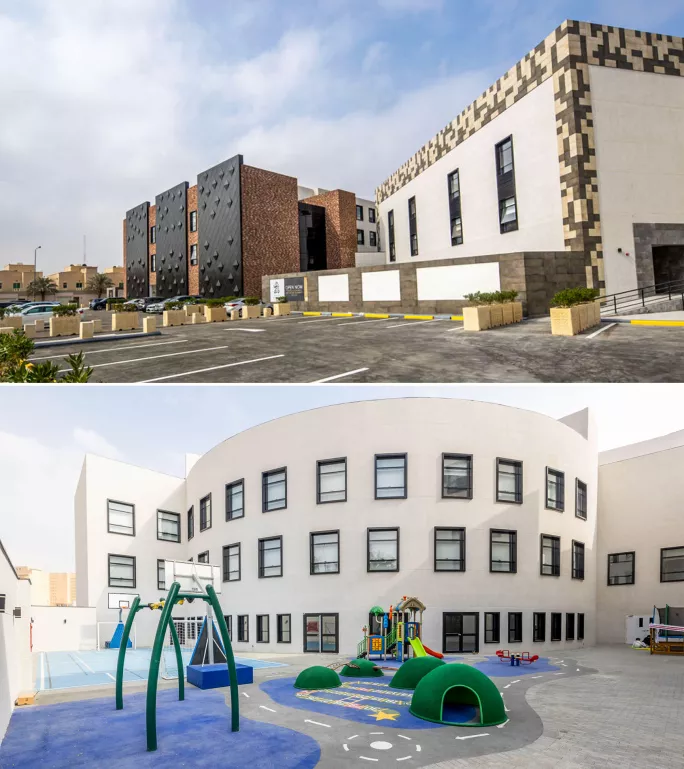
Similarly, the United Arab Emirates’ Department of Education and Knowledge issued a new inclusion policy last October that defines pupils with extra physical and psychological support needs as “people of determination” and outlines the aim of ensuring their “full integration into the educational system”.
It is legislation that many in the international sector have welcomed, including Mark Leppard, headmaster of The British School Al Khubairat (BSAK).
“It highlights the forward-thinking nature of education in the UAE, ensuring all schools are accessible and giving a very strong message that all children must have access to a high-quality provision of education,” he says.
Complementing this policy change have been numerous large-scale events in the area, which have helped boost awareness and visibility around the needs of these children.
“I think the Special Olympics [hosted in Abu Dhabi in the UAE in 2019] was a huge catalyst for a lot of change,” says Briony Emery, head of inclusion for the primary school at The British School Al Khubairat. “Disability access became much more prominent and visible.”
The World Cup in Qatar in 2022 was also seen as another catalyst for change, with Sheikha Moza bint Nasser, chairperson of Qatar Foundation, using the event to make a push for greater accessibility in schools - for example, by establishing a new department dedicated to special schools and SEND services in the country.
Frontline support
The result of all this is that schools across the region - both existing and new schools - are making SEND provision a major feature of their offering.
For example, Beech Hall School Riyadh, in Saudi Arabia (pictured above) which opened last year and offers a dedicated SEND provision, states that all children “will be considered for a place no matter what their ability or physicality.
Rather than a child needing to adapt to the constructs of the school - the school and community will do all that is possible to adapt to the needs of the individual child.”
The school, operated by UK-based Chatsworth Schools’ international division, Blenheim Schools, has 80 staff members and 270 children aged 3 to 14, a quarter of whom have been diagnosed with SEND. The whole institution has been designed with an inclusive atmosphere in mind.
“Every single classroom has been considered in terms of the sensory experience, not being too loud, not being too overwhelming, with lots of wood, and flexibility built into the furniture so that over the course of a day, you would see tables move, some children standing, some children lying down to work,” says Clemmie Stewart, executive principal.
She adds that the colours are muted but warm and there are spaces in each room for children to be by themselves if needed - something any pupils can use. “They’re designed for the 25 per cent but everybody can benefit.”
The school also has a speech and language therapist and an occupational therapy counsellor on site, and children who need one-on-one learning support can access these services for an additional cost.
Stewart says providing all of this was key for the investors who backed the new school: “The investors were absolutely determined to build a school in the heart of Riyadh that would serve a much greater proportion of the population than just mainstream children.”
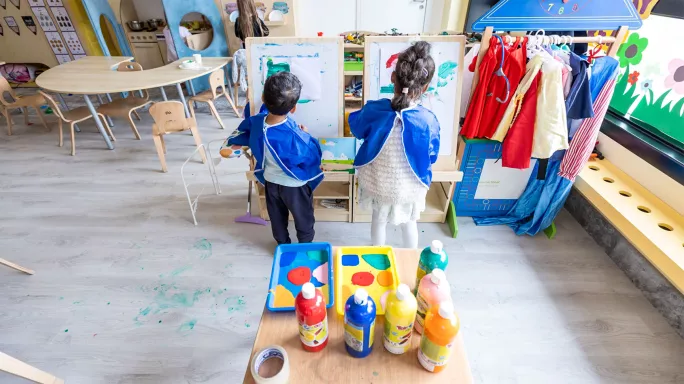
She says the impact of this has been clear to see since opening: “Parents say to us: ‘I can’t believe there’s finally an option for my child to come to school’.”
“We are currently operating under a licence that means up to 25 per cent of our community can have a diagnosed SEND: if we didn’t have that cap, we would be full tomorrow as there are so many children in the kingdom who want that inclusive approach.”
Skilled staff and the importance of training
Another establishment in the country adapting to this demand is Misk Schools in Riyadh, where Sarah Algabbani, head of learning support in the junior schools, says a huge effort in staff training to support more SEND pupils has been underway.
“There has been a push for professional development and training for educators, to better equip them with knowledge and skills, including learning about different learning styles, behavioural interventions and assistive technologies,” she says.
There is also a dedicated support department that provides one-on-one support and, if a suitable local provider can’t be found, the school links children with remote providers for educational psychologist evaluations and assessments for exam concessions.
Meanwhile, back at The British School Al Khubairat, there has been a push to hire more staff in this area too, including support assistants and special needs staff, as well as installing sensory rooms and therapy rooms for external services such as occupational therapy, speech and language therapy and psychology sessions, as suits children’s needs.
Leppard says getting these staff in can be a “challenge” given the demand in the region now, but adds that as awareness of the need grows, schools are adapting to find the right person and then offer training as required for SEND provision.
“The main aspect of successful recruitment is to get people with the right attitude - an attitude where they enjoy supporting students in a professional environment.”
Bell says he has seen more investment in continuing professional development for staff, and schools using budgets to invest in this area too: “Educational institutions are enhancing their infrastructure and resources to create inclusive environments, such as specialised classrooms, assistive technologies and support services.”
Growing provision
Of course, doing all this is not exactly cheap - but international schools are in the fortunate position that access to funding is easier than for a state school, something Emery says cannot be overlooked.
“In a private school overseas, you are allowed more creativity than you might have in the UK with the way that you can do things,” she says.
“If there’s something with brilliant new potential and [you ask] ‘could we find the money?’, you are supported. We are in a really privileged position.”
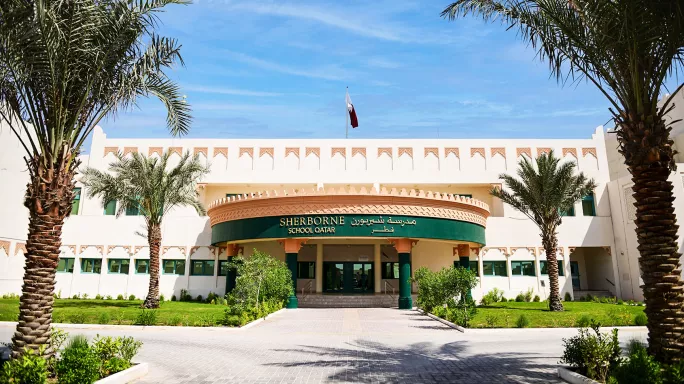
Another school benefiting from this ability to expand provision is Sherborne Qatar (pictured above), which opened a dedicated SEND school - called Sherborne Qetaf - in August 2023 to sit alongside its three existing mainstream schools.
Samantha Campion-Gibson, founding headteacher at Sherborne Qetaf (which means “harvest” in Arabic) says the need for this dedicated setting came because the group was aware that too many children were having to leave mainstream education because their needs were not being met.
“What was happening was that various families were having to split: traditionally, dad would stay and mum would have to go home with their child because mainstream schools wouldn’t be able to cater for their needs,” she says.
The setting has facilities such as multi-sensory and music therapy rooms (pictured below) and 37 pupils currently attend the setting from early years to Year 5, and this will grow year on year as it expands to work with pupils aged 3-18.
Campion-Gibson, who has a background in special schools in the UK, says being part of a “family of schools” is key to how they operate.
“We teach the English National Curriculum, like our mainstream classes, then our teachers plan specific activities or sessions [for pupils] depending on their needs, skills and strengths,” she says.
Where possible, they also aim for pupils from all settings to work alongside those in the mainstream settings: “Some of our mainstream sixth-formers, for example, will be able to support maybe PE sessions with our children as part of their Duke of Edinburgh scheme.”
She says the school calls this “shared learning” because they want it to go both ways: “Our mainstream children learn about the needs of our children and our children learn key social skills.”

The challenges ahead
While this is now off the ground, she admits it wasn’t simple because the authorities did not at first understand how the school could operate to meet the needs of certain children.
“The challenges were certain ministries not understanding the needs of the children that we’re talking about, and a misconception that some of our children, because they might have significant needs, may not be able to be in a school setting,” says Campion-Gibson.
This issue is also seen in Bahrain, where the not-for-profit Abdul Rahman Kanoo International School has to operate within the limits of the law when it comes to provision for pupils with SEND.
“The Ministry of Education dictates those schools that are allowed to accept students who have certain learning or disabilities,” explains founding principal Kate Moskwa.
“So I’m allowed to take students, perhaps who have hearing or sight disabilities, but not students who are formally diagnosed with autism.”
She admits this is an issue and shows the area can evolve further in terms of understanding how inclusive a mainstream school can be for pupils with SEND. “There’s still a huge cultural stigma,” she adds.
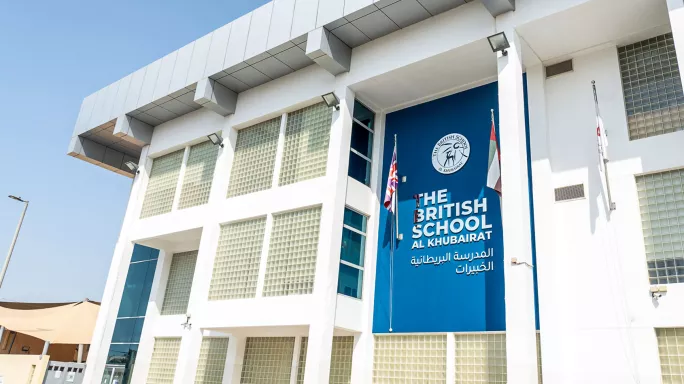
This cultural stigma is something Saqib Rasib, head of learning support (boys’ schools), at Misk Schools in Riyadh, agrees remains a barrier in some instances.
“SEND, at times, can be a sensitive area to discuss with some parents,” he points out.
“Over the past few years, I have noticed more parents becoming open to discussions around dyslexia and ADHD, but, from my experience, discussions around autism are not as easily received. Furthermore, accessing trained individuals can be challenging.”
Frances Marshall, head of inclusion in the secondary school at BSAK, sees this too.
“One family will be very accepting and understanding, and might come to you saying, ‘I think my child might have traits of autism or might be dyslexic’, but then you’ll have other families where you can’t even mention those words and it’s slow progress,” she says.
“We are always trying to keep the family on board with a joint approach. This is a very new country, in a lot of ways it’s a very progressive country, but in terms of things like inclusion, it is still very much a work in progress.”
A journey in the right direction
Bell adds that in some instances “affordability remains a challenge” as schools have to charge as much as 50 per cent more in fees to meet students’ needs in some instances - so, as ever, in international education, the financial side cannot be ignored.
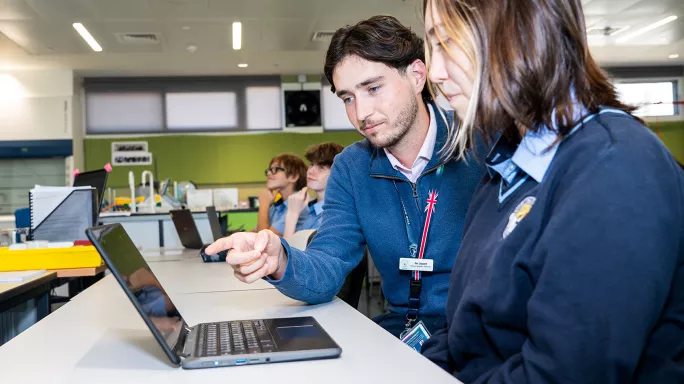
Clearly, then, there is a long way to go with SEND in terms of provision, support and understanding - a situation those in the UK will recognise.
Nevertheless, with awareness rising and schools becoming more inclusive, those with years of experience working in the Middle East say it is apparent that things are moving in the right direction and will only get better.
“It’s not something school leaders can ignore. The UAE is making huge strides, there are big changes in Saudi…all countries are moving forward,” Forsyth says.
Senay Boztas is a freelance journalist
Additional reporting by Dan Worth
topics in this article



